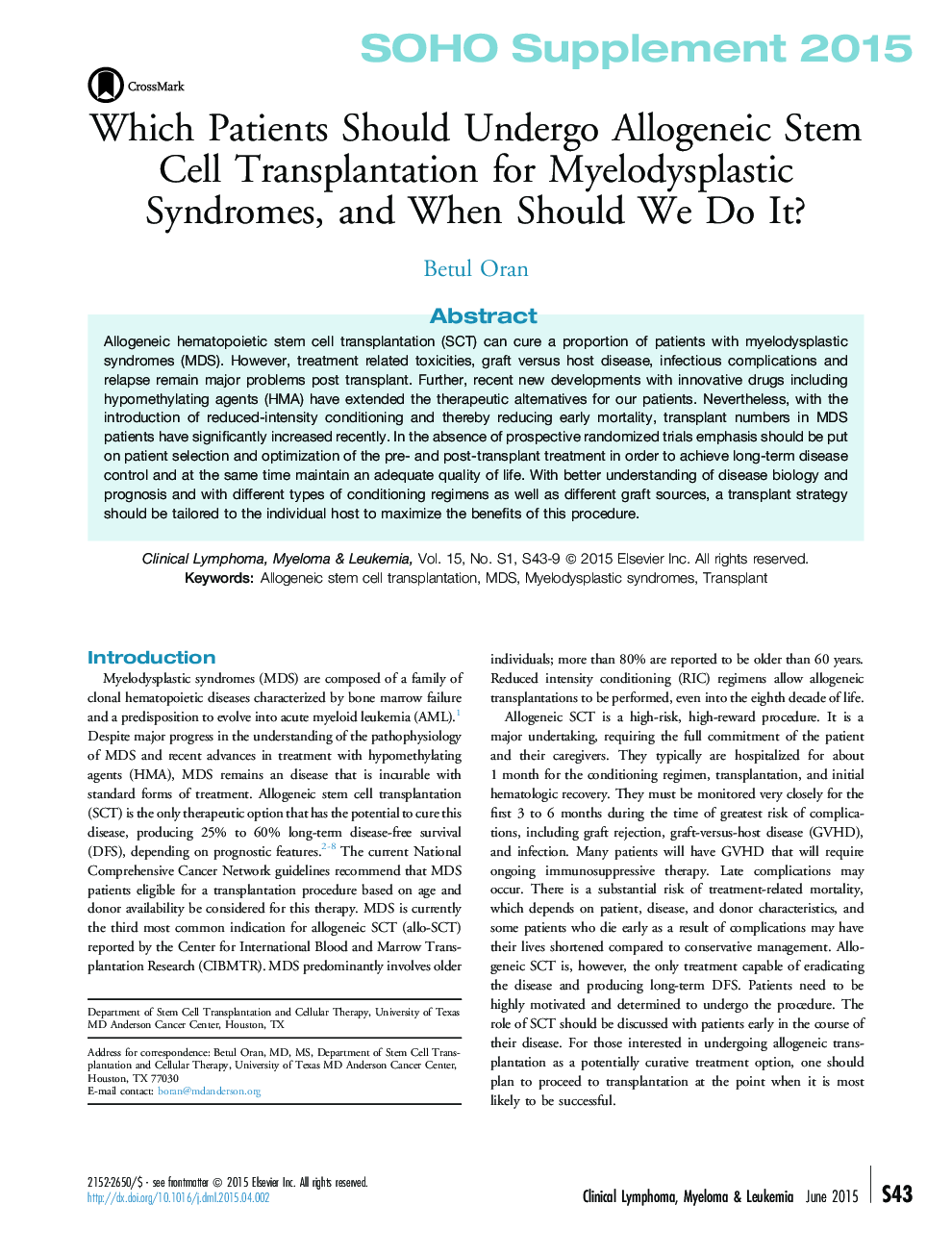| Article ID | Journal | Published Year | Pages | File Type |
|---|---|---|---|---|
| 5883059 | Clinical Lymphoma Myeloma and Leukemia | 2015 | 7 Pages |
Allogeneic hematopoietic stem cell transplantation (SCT) can cure a proportion of patients with myelodysplastic syndromes (MDS). However, treatment related toxicities, graft versus host disease, infectious complications and relapse remain major problems post transplant. Further, recent new developments with innovative drugs including hypomethylating agents (HMA) have extended the therapeutic alternatives for our patients. Nevertheless, with the introduction of reduced-intensity conditioning and thereby reducing early mortality, transplant numbers in MDS patients have significantly increased recently. In the absence of prospective randomized trials emphasis should be put on patient selection and optimization of the pre- and post-transplant treatment in order to achieve long-term disease control and at the same time maintain an adequate quality of life. With better understanding of disease biology and prognosis and with different types of conditioning regimens as well as different graft sources, a transplant strategy should be tailored to the individual host to maximize the benefits of this procedure.
